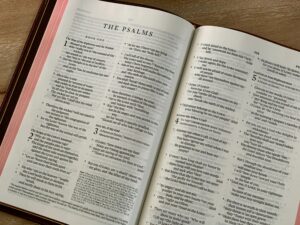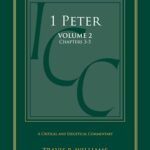Wisdom Psalms or a Wisdom Psalter?
Over the past few years, I’ve had the opportunity to study the Psalms for various academic projects. One of the areas of research has been the presence of wisdom elements in the Psalter. This study culminated in the recent publication of an article in Old Testament Essays entitled “The Wisdom Shaping of the Psalter: From Wisdom Psalms to a Wisdom Framework” (OTE 36 [2023]: 445–70). The paper is available for free download here.
In this post, I’d like to outline some of my findings in that project. Much debate surrounds the alleged presence of wisdom in the Psalter. Many studies focus on the identity and nature of wisdom psalms. This approach remains controversial in that few interpreters agree on which psalms constitute wisdom psalms. A preferable approach concentrates on the function of wisdom persons, terms, and themes in shaping the Psalter. Key markers suggest that the final editor(s) of the Psalter intended the book to be read and mastered as a wisdom writing by the placement of wisdom vocabulary, paragons, and motifs as mnemonic benchmarks. These features include the governing position of Psalms 1–2 as the twin introduction to the Psalter, the distribution of the ashre (“blessed”) formula, lexical and thematic ties to Proverbs, the use of the term maskil in connection to David’s wisdom, the recurring presence of sages, and the wisdom framing of Book V. These factors hint that wisdom carried a decisive, functional influence in shaping the contours of the Psalter. In this post, I want to discuss a few of these features.
Psalms 1–2 provide a wisdom introduction to the Psalter. One component to recognize here is the use of key wisdom terms. The term blessed frames Pss 1–2 (Pss 1:1; 2:12). This “blessing formula” appears in strategic places throughout the Psalter, including at the ends of Book I (Ps 41:1), Book II (Ps 72:17), Book III (Ps 89:15), Book IV (Ps 106:3), and the beginning of the epilogue (Ps 146:5). “Blessing” or beatitude is a key function of wisdom in Proverbs (Prov 3:13; 8:32, 34; 28:14). In addition, Psalm 2 mentions that the nations “plot” in vain. The word plot is a Hebrew wisdom term normally translated as “meditate.” This term appears in several psalms that carry wisdom themes (Pss 37:30; 90:9; 143:9). Psalm 2 also depicts David’s relationship with the Lord as that of a father and son, in keeping with the common “my son” language of Proverbs (Prov 1:8, 10; 2:1; 3:1).
Second, there are lexical and thematic ties to the book of Proverbs. In this connection, Psalm 1 closely mirrors the father’s opening speech in Prov 1:8–19, while Psalm 2 closely mirrors Lady Wisdom’s opening discourse in Prov 1:20–33. The parents’ instruction in Prov 1 uses the Hebrew term Torah, which matches what the blessed man meditates on in Psalm 1. The son in Prov 1 is to avoid “sinners,” who also pose a threat to the man in Psalm 1. The son is not to walk in their “path” in Prov 1, just as the man in Psalm 1 avoids standing in their “path.” Sinners “go down” to the pit in Prov 1, just as they cannot “rise” in the day of judgment in Psalm 1. Similarly, Psalm 2 carries affinities to Lady Wisdom’s opening speech. Lady Wisdom cries out from the “top” of the noisy streets (Prov 1:21), while the Davidic king is installed atop Mount Zion (Ps 2:6). Lady Wisdom addresses her discourse to scoffers (Prov 1:22), while the psalmist addresses the foolish kings who spurn the Lord (Ps 2:10). Lady Wisdom promises to “laugh at” and “mock” the wicked (Prov 1:26), just as the Lord “laughs at” and “mocks” the wicked (Ps 2:4). Lady Wisdom favors those who choose the fear of the Lord (Prov 1:29), while the kings are likewise admonished to fear the Lord (Ps 2:11).
In addition, key terms from Proverbs appear in key places in the Psalter. These terms include wisdom (12x in the Psalter), teach (27x), and instruct (8x). The terms grow in urgency and pervasiveness as the Psalter progresses, and several of the Psalter’s five books are framed by these terms. There are a number of other wisdom features evident in a careful study of the Psalter. To trace all of these exceeds the limitations of the present post. Their presence, nonetheless, suggests that a close reading, even memorization, of the Psalter functions to take us as the readers and meditators down the same path as the blessed man of Psalm 1. Interested readers are encouraged to read the rest of the article here.



